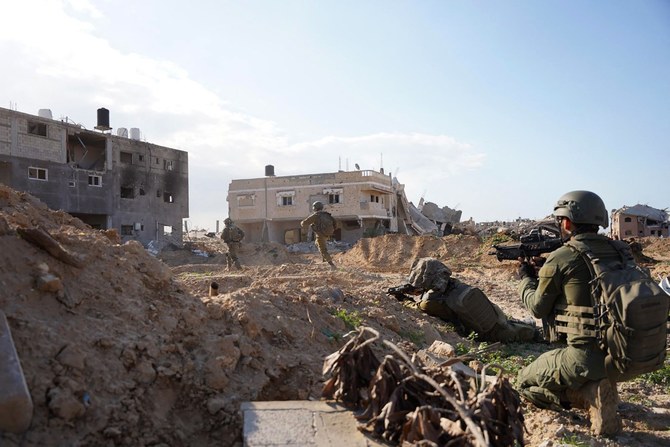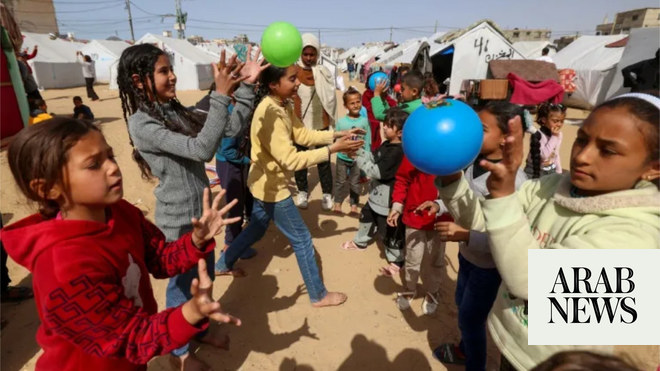
Delegates set a five-week timetable for committees to finalize the recommendations and present them to the next meeting
GAZA CITY: The general secretaries of the Palestinian factions held an “historic” reconciliation meeting in Beirut, nine years after a similar get-together in Cairo ended in fall out and disagreement.
Last week’s gathering, chaired virtually by President Mahmoud Abbas from Ramallah, included 12 factions of the Palestine Liberation Organization (PLO), in addition to Hamas and Islamic Jihad.
Smiles, friendship, and courtesy were in plentiful supply, producing a generally optimistic outlook from the meeting, even from polar-opposite political rivals Fatah and Hamas.
Secretary-general of the PLO’s executive committee, Saeb Erekat, told Arab News: “The meeting represents an historic event, and an important step on the road to achieving the unity of the Palestinian political and struggle position, and the embodiment of political partnership and agreement on clear work mechanisms and a timetable to end the division, which weakens the Palestinian position in the face of challenges.”
Husam Badran, head of national relations for Hamas and a member of the organization’s political bureau, told Arab News that staging the meeting had been a necessary step in bringing sides together.
It had been an important and long-awaited event brought about as a result of “detailed discussions between Hamas and Fatah about what is to come, and the dangers facing our national cause,” he said.
“We believe, in Hamas, that our unity as Palestinian people with all its components give us more power, and we are talking about the Palestine Liberation Organization in this context, which we believe is the inclusive home for all Palestinians.
“But it should include everyone with all the factional components, civil society institutions, and balanced national figures,” Badran added.
Erekat said that Abbas’ approval of committees’ recommendations from the meeting was a key mandate and clear confirmation of the Palestinian leadership’s interest in the success of the unity mission.
Delegates set a five-week timetable for committees to finalize the recommendations and present them to the next meeting that, according to Erekat, would be attended by the secretaries of the factions, members of the PLO executive and central committees, and political and religious figures.
The committees discussed the three main issues of peaceful popular resistance, the national and political project, and political partnership and the rebuilding of the PLO.
Since the split in 2007, the PLO file has remained an obstacle to the success of many of the understandings and agreements signed by the two factions.
Badran said the presence of a strong, unified PLO representing all Palestinians would block the road to “stalkers” and close the door to parties that justified their policies by claiming “the Palestinians are not represented by anyone.”
In the new positive atmosphere of cooperation, a ministerial delegation consisting of five ministers from the West Bank visited the Gaza Strip to follow up on efforts to contain the coronavirus disease (COVID-19) outbreak in Gaza.
However, political science professor, Ibrahim Abrash, told Arab News that the success of last week’s meeting would be judged on results rather than the smiles of the leaders.
He said that correcting the Palestinian reality required “continuing efforts from everyone, and not only meeting the secretary-generals of the factions or waiting for the outputs of the committees that have been formed.”
Hani Al-Masri, a political analyst and the director general of the Masarat center for policy research and strategic studies, said while some Palestinians remained skeptical about the true intentions of the meeting the gathering in itself had been significant and a step on the road to strengthening fragile Palestinian unity.












